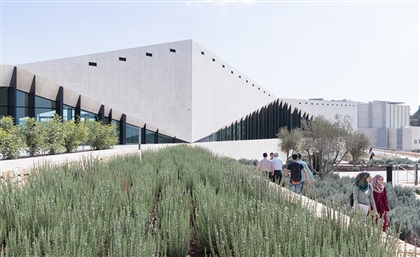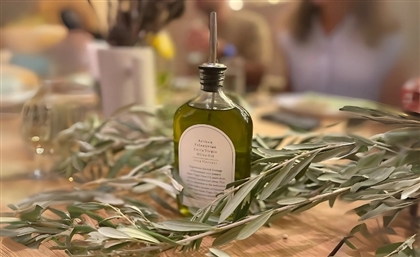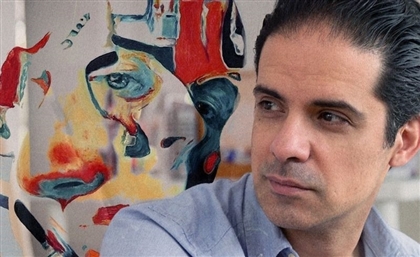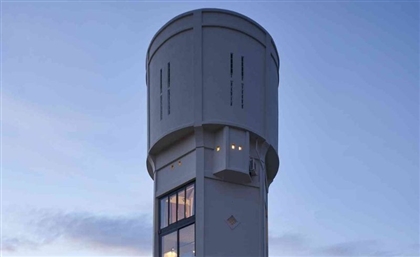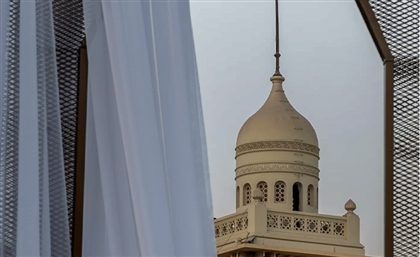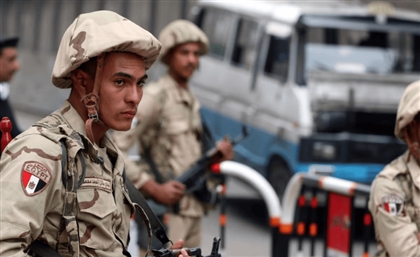How Olive Oil Brand Othmana Bottles & Preserves Palestinian Roots
For Mohammad Warrad, olive oil is more than a kitchen staple - it’s a link to 400 years of tradition. The family-run brand preserves heritage while sharing a family’s story and culture.
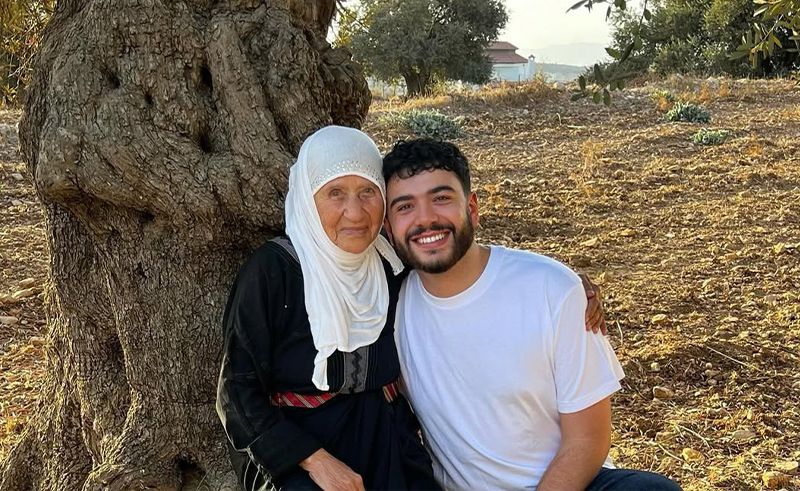
Originally Published on December 13th, 2024
For Palestinian-American Mohammad Warrad, olive oil isn’t just a kitchen staple - it’s a link to his family’s history and Palestinian heritage. Growing up, the family olive oil was simply “grandma’s thing,” always present but something he never thought much about. That changed as he got older and tasted other oils, realising just how special his family’s product was.
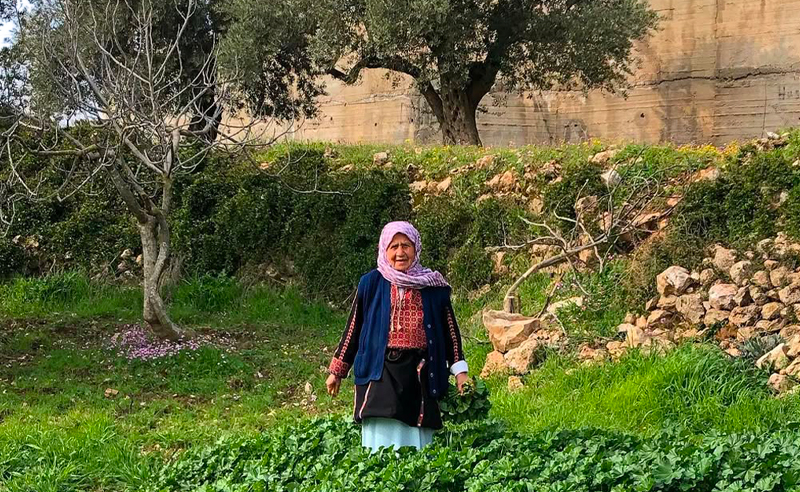
“Everything on the market felt super profit-driven, sacrificing taste through low-quality or unready olives. You could really taste the difference,” Warrad tells CairoScene. “One day, I thought everyone should try our family’s oil. There’s no gatekeeping here - my family’s gate-kept it for long enough.”
That realisation sparked an idea: to present the family legacy to the world while preserving its traditions. “Although tradition is extremely important to the brand - we still hand-harvest and press our oils as we did over 300 years ago - I didn’t want the brand to feel stale,” Warrad explains. “Capturing that thin line of tradition and modernity was something I grew very passionate about.”
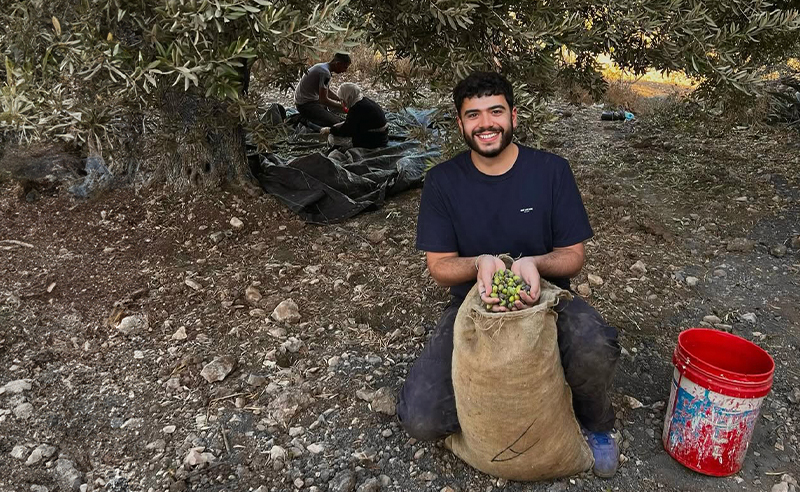
This balance is reflected not only in the olive oil itself but also in the brand’s design. Warrad designed everything from the packaging to the website to the bottles, ensuring each element reflected the brand’s values,such as this year’s choice of introducing tins instead of bottles for sustainability. From a design lens, the logo's handwritten font captures an organic, authentic and relatable feel, with varying thicknesses and proportions for a playful and nostalgic touch. Hand-drawn olives in the product descriptions evoke childhood memories, while the use of yellow - a colour known for its attention-grabbing qualities - perfectly reflects the warmth of the land.
The brand’s olive oil comes from the family’s groves in Deir Dibwan, a small village with a population of under 8,000 in the central West Bank, east of Ramallah. These groves were planted by their family nearly 400 years old, and for Sitti Othmana, Mohammad Warrad’s grandmother and the brand’s namesake, every tree captures a spiritual connection to Palestine, as well as her past, present and future.
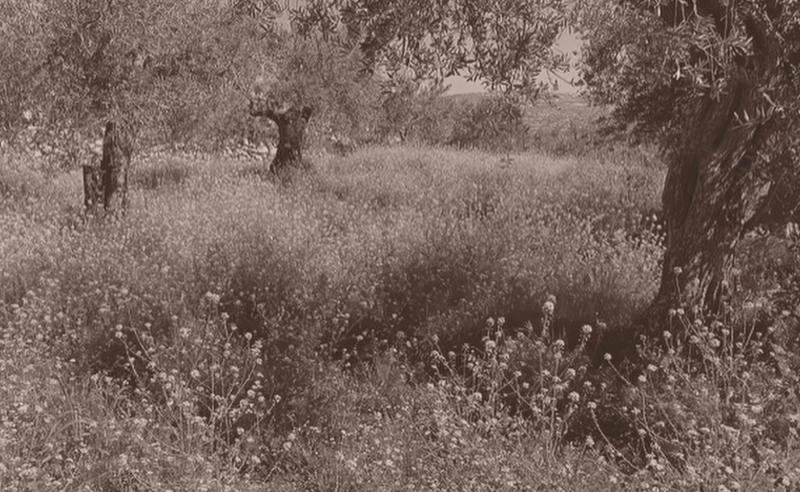
“When I was a kid, we took trips to see my grandmother in the grove, but I never quite understood the profound history and culture or what it meant to even be Palestinian,” Warrad reflects. “Starting the business really took me deep into understanding my roots, my family’s roots, and, of course, my grandmother. What she continues to do at 87 years old is so important to me - it’s the preservation of our roots, literally.”
The annual harvest season is a labour-intensive process that could easily be automated, but Sitti insists on maintaining tradition. “She goes in by hand and pulls out every single olive, refusing to let them fall into the bags that eventually go into the press,” Warrad shares. “It’s an act of love, respect and service to the land.”
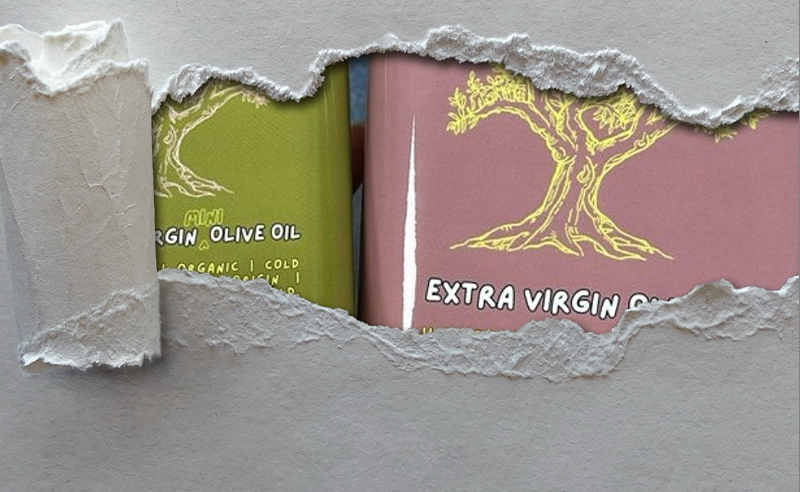
As with many Palestinian families, maintaining the groves isn’t without its challenges. “There’s always a fear that our groves will be impacted by the political strife in the region. We've seen it happen to others in town, but I think our mission is beyond that,” Warrad says. “The brand does not want to be tied solely to war and sadness, nor should the identity of Palestinian people only be tied to war. The brand is our love language to anyone who tries the olive oil. It’s a testament to the preservation of Palestinian culture and heritage - our family’s story and my people’s story all wrapped up in a bottle.”
The family’s brand embodies the history, beauty and resilience that have shaped Palestinian culture. It tells a universal story of connection and the importance of honouring one’s past, even in diaspora. At 25, Mohammad recently returned to Palestine to help his grandmother during the harvest season, a journey that spanned 48 hours of travel and three weeks immersed in the land.
“The land has this mysterious, ancient air there that's not captured in any modern city. It's funny that the air radiating from the land is peaceful, given the conflict that humans create, but I see the land separate from the qualms and people. It's much larger than us. The sheer labour that went into the harvest is something I’ve never experienced,” Warrad shares. “The experience changed my perspective on how I want to lead my life forward.”
Trending This Week
-
Feb 16, 2026








